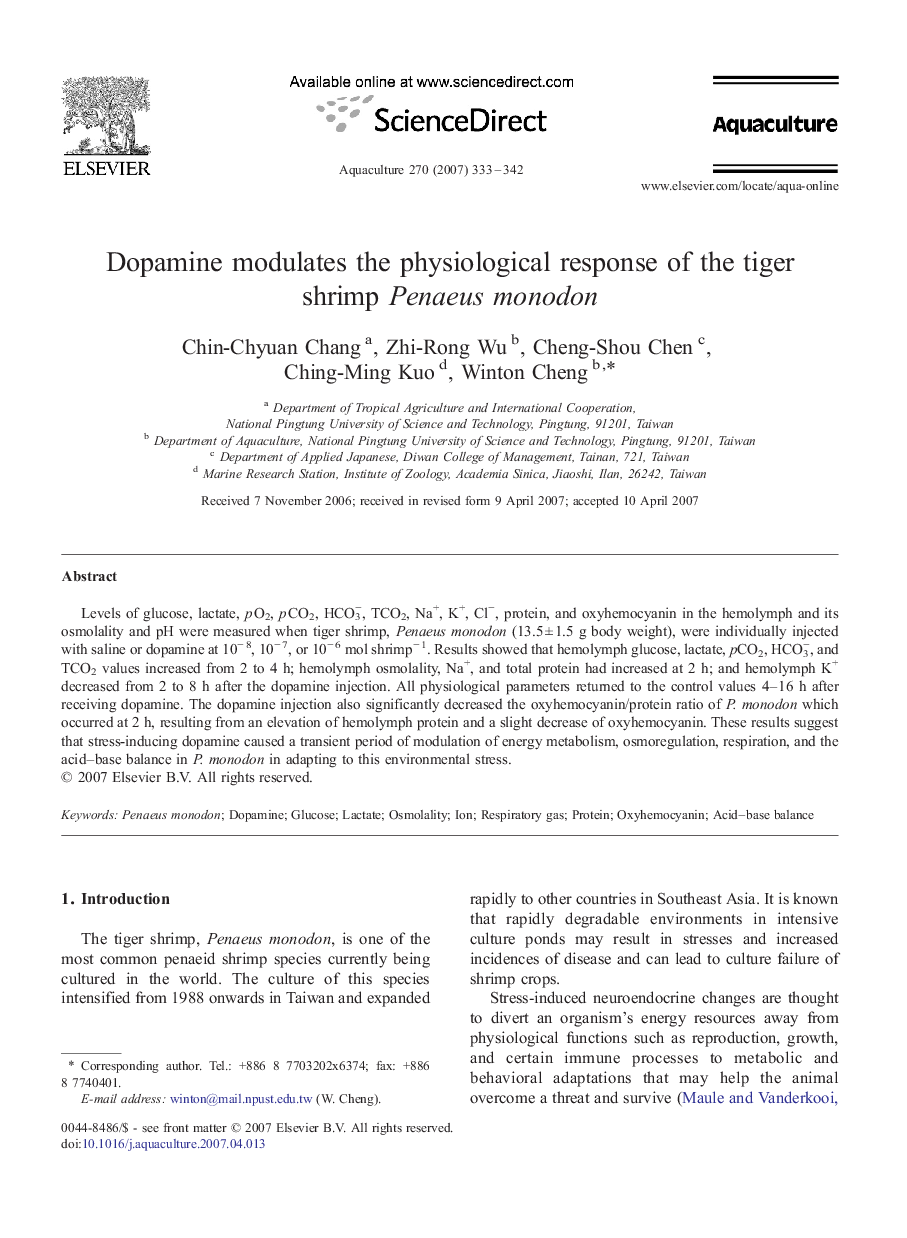| Article ID | Journal | Published Year | Pages | File Type |
|---|---|---|---|---|
| 2425057 | Aquaculture | 2007 | 10 Pages |
Levels of glucose, lactate, pO2, pCO2, HCO3−, TCO2, Na+, K+, Cl−, protein, and oxyhemocyanin in the hemolymph and its osmolality and pH were measured when tiger shrimp, Penaeus monodon (13.5 ± 1.5 g body weight), were individually injected with saline or dopamine at 10− 8, 10− 7, or 10− 6 mol shrimp− 1. Results showed that hemolymph glucose, lactate, pCO2, HCO3−, and TCO2 values increased from 2 to 4 h; hemolymph osmolality, Na+, and total protein had increased at 2 h; and hemolymph K+ decreased from 2 to 8 h after the dopamine injection. All physiological parameters returned to the control values 4–16 h after receiving dopamine. The dopamine injection also significantly decreased the oxyhemocyanin/protein ratio of P. monodon which occurred at 2 h, resulting from an elevation of hemolymph protein and a slight decrease of oxyhemocyanin. These results suggest that stress-inducing dopamine caused a transient period of modulation of energy metabolism, osmoregulation, respiration, and the acid–base balance in P. monodon in adapting to this environmental stress.
